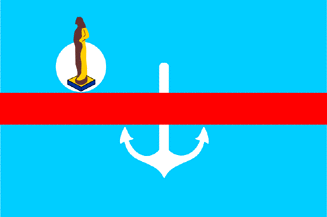A ban on single-use plastic was introduced in the Red Sea Governorate in June 2019, targeting plastic bags and items from shops, restaurants, and cruise ships.

Single-use plastic ban by the Red Sea Governorate
EXPECTED OBJECTIVES
Plastic waste causes significant nuisance to the environment and human health. The Red Sea Governorate decided to ban single-use plastic for different reasons:
• Prevent the presence of plastic waste in the sea, which threatens marine life;
• Prevent the negative impact of plastic on human health;
• Preserve the local environment, which is one of the main components of the region’s appeal for tourists.
BACKGROUND INFORMATION AND LOCATION
General information on the territory:
• Location: Red Sea Governorate
• Country: Egypt
• Population of the urban area: 366,000 inhabitants
• Density: 1.8 inh./km²
IMPLEMENTING BODIES
The decree was drafted and issued by the Red Sea Governorate, following a proposal made by the Hurghada Environmental Protection and Conservation Association (HEPCA), an NGO specialised in marine and land conservation in the Egyptian Red Sea. The Governorate implemented fines for businesses that do not comply with the decree. To contribute to the implementation of the decree, HEPCA conducted a public awareness campaign and offered certifications to businesses eliminating single-use plastic products.
KEY STAKEHOLDERS INVOLVED
The decree was implemented by the Governorate with the help of HEPCA. It mostly targets the food-related outlets, such as:
• Hotels, restaurants, coffee shops;
• Retailers, such as supermarkets, grocery stores, butcher shops, fish mongers, fruit and vegetable shops and pharmacies;
• Safaris, cruise ships.
GENERAL CONTEXT
The Red Sea Governorate includes many touristic destinations in its coastal resort areas. Tourism is one of the country’s leading economic sectors, yet it also entails an increasing waste production, especially single-use plastics, which have a significant impact on the environment, especially marine life. It is assessed that 12 billion plastic bags are used every year in Egypt.
A campaign aiming to reduce the generation of plastic waste by banning single-use plastics in the region, called “No Plastic in the Red Sea”, was launched by HEPCA in 2018, following a study highlighting the role of plastic waste in regional pollution. This led to a proposal for a ban on the production and use of single-use plastics in the Red Sea Governorate in early 2019.
DESCRIPTION OF THE ACTIVITIES
Following the proposal by HEPCA, Decree no. 167 was issued on 1 April 2019, and targeted the following products:
• Single-use plastic bags;
• Plastic cutlery like knives, plugs, hooks, cups, straws, and dishes.
As mentioned above, the HORECA sector, retailers, and ships are affected by the ban, since it is now forbidden to produce such products in the region.
Between the publication of the Decree in April 2019 and its implementation in June 2019, awareness campaigns were put in place by HEPCA, targeting shop owners and plastic bag companies to identify alternatives for single-use products. The campaign also included lectures given in schools on the negative impact of plastic on marine life, clean-up campaigns on beaches, and collaborations with diving centres. About 15,000 reusable bags were provided to government employees, to citizens in public places (vegetable markets, mosques, etc.). Paper bags were also proposed for supermarkets, at a cost between 2 and 5 Egyptian pounds. As for plastic cutlery and straws, alternatives made of metal, wood, or glass were promoted.
In addition, HEPCA started to provide support to hotels and resorts to reduce plastic usage in their facilities. Certifications are awarded to hotels that successfully apply such a strategy. The Siva Grand Beach Hotel in Hurghada was the first to be granted the certification: as an illustration, the hotel conducted the following actions:
• List the single-use plastic items used in the hotel;
• Identify alternatives for these items: wooden spoons, paper straws, bamboo chairs, fabric wristbands, big jars for the buffet instead of individual ones.
Fines were imposed by the end of July 2019 for businesses continuing to use plastic. HEPCA tends to prefer community-oriented approaches to convince businesses that fail to comply with the ban. Communication is regarded as a key element to make the ban effective.
ECONOMIC IMPACT
There is little data on the economic impact of the ban, for instance on the businesses. Hotels and resorts seemed to consider that the shift from single-use products can be regarded as an investment for sustainable tourism, which makes them more attractive, and preserves the environment on which their businesses depend.
MAIN ACHIEVEMENTS AND RESULTS
There is little data on the quantitative impact of the ban on single-use plastics; the Governorate and HEPCA report that the ban was effective and that most businesses and consumers complied during the first months of its implementation. The ban was replicated in other places in Egypt: the South Sinai Governorate implemented a similar ban in March 2020, and other cities have followed since then.
KEY FACTORS OF SUCCESS
The involvement of HEPCA in the preparation of the decree, and in the implementation of awareness raising activities and training for businesses, can be regarded as one of the keys to the success of the ban. Business-owners must be provided with information and alternatives to single-use plastic products.
BOTTLENECKS, LIMITATIONS AND CHALLENGES
While hotels and resorts generally saw the benefit of promoting sustainable tourism and preserving the natural environment, retailers and consumers were more reluctant to give up such products. Plastic bags are a cheap solution for retailers and consumers, and reusable alternatives might prove quite expensive. Single-use plastic products were commonly used for many years by consumers and shops, which made the shift challenging.
HEPCA also considers that the ban should be extended to the national level to be more effective.
LESSONS LEARNED AND REPLICABILITY
This action shows that it is possible to implement such a ban at regional (sub-national) level. However, the main challenge is to implement such a ban on the ground. The collaboration between the Governorate and HEPCA has been essential for the success of the ban.
The ban might have been appealing to the local population and businesses due to the importance of tourism for the local economy, and the fact that single-use plastics have a negative impact on tourism. This argument might not work in regions where tourism is of lesser importance.
REFERENCES, LINKS TO FURTHER INFORMATION
• HEPCA (2019), No Plastic Campaign in the Red Sea, Accessed 23 August 2021, https://www.hepca.org/projects/project/169
• Maged, M. (2019) Red Sea Governorate bans plastics, accessed 23 august 2021, https://egyptindependent.com/red-sea-governorate-bans-plastics/
• http://www.redsea.gov.eg/new19/new.aspx?ID=1544
• Nader, A. (2019) How the Red Sea is Leading Egypt’s Environmental Action, accessed 23 august 2021, https://egyptianstreets.com/2019/07/12/how-the-red-sea-is-leading-egypts-environmental-action/
• Dive Magazine (2019), Proposal to Ban Single Use Plastics Approved by Red Sea Governor, accessed on 23 August 2021, http://divemagazine.co.uk/eco/8492-red-sea-governorate-bans-single-use-plastics
• Dive Magazine (2020) South Sinai joins single use plastic ban, accessed 23 august 2021, http://divemagazine.co.uk/eco/8828-south-sinai-joins-single-use-plastic-ban
• Egyptian Streets (2019), Egypt’s Red Sea Governor Bans Single-Use Plastics, accessed 23 august 2021, https://egyptianstreets.com/2019/04/01/egypts-red-sea-governor-bans-single-use-plastics/
• Egyptian Streets (2019) Dahab Launches Initiatives to Become a Plastic-Free Zone, accessed 23 august 2021, https://egyptianstreets.com/2019/07/07/dahab-launches-initiatives-to-become-a-plastic-free-zone/
• Dhenin, M. (2020), Egypt’s fight to preserve coral reefs in the Red Sea, accessed 23 August 2021, https://www.euronews.com/green/2020/09/28/egypt-s-fight-to-preserve-coral-reefs-in-the-red-sea
• Sayed, N. (2019), Plastics ban in the Red Sea, accessed 23 August 2021, https://english.ahram.org.eg/News/337694.aspx
Key information
Topic: prevention
Waste fraction: single-use plastic
Target group: HORECA, retailers, cruise ships, civil society
Instruments: regulation
Date of the implementation
June 2019
